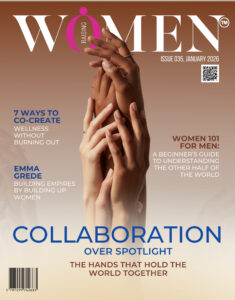by Sinjae Francisca
We live in a world where money often dictates access to services , Take a deep breathe, NOW, imagine a world where your time is currency. An hour spent babysitting could earn you an hour of tutoring, Amazing right? This is not a Futuristic concept its called “ TIME BANKING” is a unique concept that transforms how we perceive and exchange services. This was Introduced in 1980 by Edgar Cahn in the United States, and it aims to strengthen communities, foster inclusivity, and provide equitable value for everyone’s time.
In this increasingly capitalist-driven world, time banking is a refreshing reminder of humanity’s intrinsic value—an idea that people’s time, irrespective of their professional qualifications, is equally precious.
What then is Time Banking?
Time banking is a barter system where participants exchange services using time as currency. For every hour you spend helping someone, you earn a “time credit,” which you can redeem for services from another member. The beauty lies in its simplicity: one hour of service complexity.
How It Works
Time banking operates on one simple principle: one hour of service equals one time credit. A member earns credits by offering a service, such as cooking or elder care, and can redeem them for services from others. These exchanges are facilitated through digital platforms that record credits and connect members within a local network. Unlike the monetary economy, where hierarchies prevail. Time Banking values all skills equally—whether you’re a CEO offering career advice or a retiree helping with grocery runs.
Time banking is more than a barter system; it’s a community glue. For instance, in Japan, it has been woven into elder care systems, where younger people help seniors and earn care giving credits for their future. Today Time banking can been seen in Over 30 countries with countries like U.S Spain, Japan, South Korea etc actively involved. Examples;
In the U.S., the Visiting Nurse Service of New York’s time bank connects 2,000 members, strengthening social bonds and improving access to essential services.
In Spain, time banks have revitalized cities like Barcelona, fostering
inclusion and enabling skill-sharing. Beyond individual benefits, time banks have ecological impacts, encouraging resource-sharing and reducing waste. Community gardens, repair services, and wellness workshops exemplify how this system integrates sustainability into its fabric.
Time banking is not without its flaws. For one, not all skills are in equal demand. While babysitting and tutoring are popular, niche skills like carpentry might find fewer takers. This skill imbalance can discourage participation.
Management complexity is another hurdle. Time banks require robust organization to track credits, facilitate exchanges, and ensure fairness. Larger networks often struggle to maintain the personal connections that make smaller systems thrive.
Finally, there’s the question of scalability. While time banking works wonders in close-knit communities, replicating its success in urban or global contexts is challenging due to cultural and logistical
differences.
Time banking is a prototype of what society could become if we prioritized people over profit. It shows us that wealth isn’t just financial—it’s communal, relational, and deeply human.
Thinking to start a Time Bank?
For individuals looking to start a time bank, the steps are surprisingly simple: assess community interest, develop operational frameworks, and promote membership through events and social media. As the system grows, continuous monitoring and adaptability are key to addressing challenges.
In Conclusion: Time banking is both a throwback and a leap forward. It harks back to ancient barter systems but redefines them with modern technology and Impartial deals. While it’s not a silver bullet for economic disparity, it’s a beacon of hope—a system where everyone’s time holds equal worth, where communities thrive, and
where isolation gives way to connection.
So, whether you’re exchanging an hour of babysitting for tech support or simply looking to reconnect with your neighbors, time banking reminds us that, in the end, time truly is the most valuable
currency.







